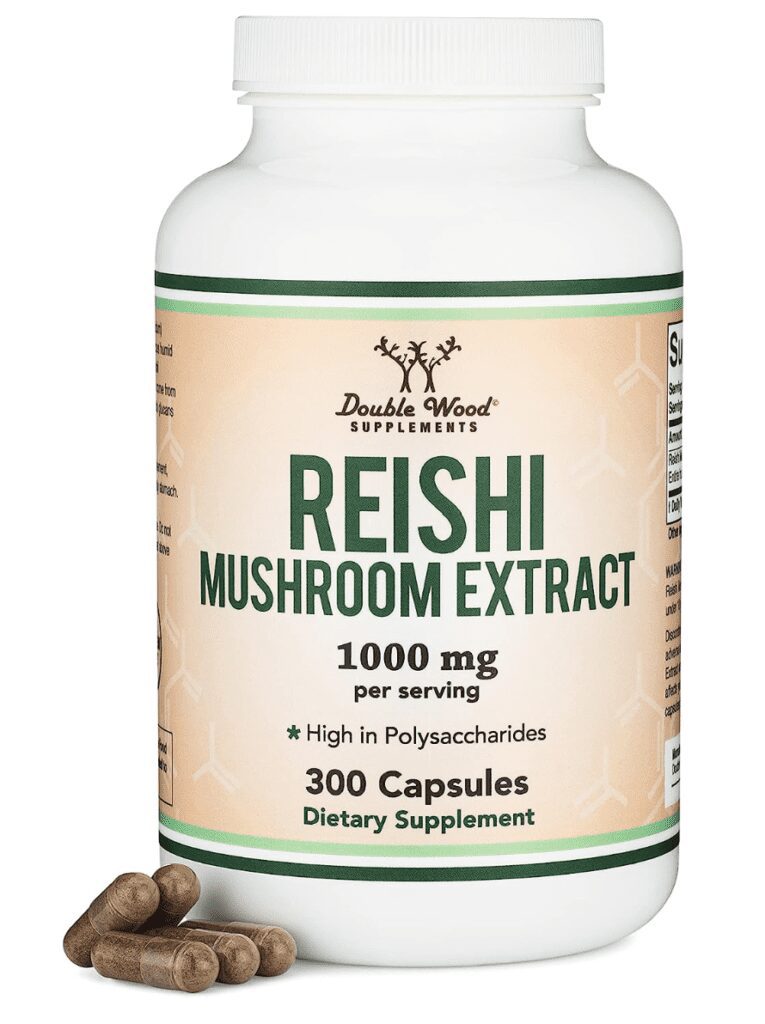Does Reishi play a role in promoting better sleep and combating insomnia?
Tired of battling sleeplessness? Seeking the elusive land of restfulness? Picture this: a world where relaxation reigns, stress takes a backseat, and anxiety waves goodbye. Ah, the sweet serenade of sleepiness calling you to a haven of Zzz’s.
But wait, can this be real? Imagine if nature held the key to your tranquil dreamscape, an age-old secret whispered through the leaves. It’s time to unravel the enchantment, the potion that lulls your worries to slumber and tucks your mind into a cozy cocoon.
Step into the realm where the moonlight dances on the edges of your eyelids.
Unearthing the Top 10 Questions Surrounding Reishi and Sleep
- Is Reishi really effective in improving sleep quality?
- How does Reishi interact with our body’s sleep cycle?
- Are there scientific studies supporting Reishi’s sleep benefits?
- What compounds in Reishi contribute to its sleep-promoting effects?
- Can Reishi help those with chronic insomnia?
- What’s the right dosage of Reishi for better sleep?
- Are there any potential side effects of using Reishi for sleep?
- How does Reishi compare to traditional sleep aids?
- Can Reishi be used as a natural remedy for sleep disorders?
- Are there different forms of Reishi that are more effective for sleep?
Unveiling the Science: How Reishi Influences Sleep Patterns
In the quest for restful nights, Reishi emerges as a fascinating ally. This centuries-old fungus, scientifically known as Ganoderma lucidum, dances with our circadian rhythms, ushering us into the embrace of slumber. Rich in bioactive compounds, Reishi orchestrates a symphony of effects within the body.
Bioactive Bliss: At the heart of Reishi’s sleep-inducing prowess lies a cocktail of polysaccharides, triterpenes, and peptides. These bioactives waltz with neurotransmitters, engaging in a delicate tango that relaxes the mind and readies the body for rest.
Adieu Anxiety: Reishi’s triterpenes moonlight as anxiolytics, calming the nervous system’s cacophony. By lowering anxiety’s volume, Reishi helps in silencing the thoughts that often keep us tossing and turning.
Circadian Serenade: Beyond anxiety, Reishi sings a lullaby to our circadian rhythm. Tucked beneath its chemical cloak are compounds that whisper to our internal clock, harmonizing it with the natural world’s nocturnal cadence.
Balancing Act: Reishi isn’t just about lulling us into sleep; it’s also an adaptogen. It meets our body’s unique needs, whether that’s soothing an overactive mind or bolstering a fatigued body. This balance sets the stage for restorative rest.
Peering into the Research: Is Reishi a Reliable Remedy for Insomnia?
Studies into Reishi’s slumberous effects paint a promising picture. Scientific brushstrokes reveal its ability to increase sleep duration and improve sleep efficiency. A 2012 study1 whispers of Reishi’s sedative serenades, while a 2019 exploration2 echoes its potential in sleep quality enhancement.
But tread softly, for not all studies are cut from the same cloth. Variability in dosages and preparations casts a shadow of uncertainty. Yet, even amid these variables, Reishi’s melodic influence on sleep remains an alluring motif.
The Dance of Compounds: How Reishi’s Elements Soothe the Sleepless
Reishi’s bioactive ensemble forms a dreamy synergy. Polysaccharides extend a nurturing hand, modulating the immune system while tenderly calming the overactive mind. Triterpenes, those tranquilizers, join the dance, sedating stress and unclenching insomnia’s grip.
Tranquility-inducing beta-glucans engage with receptors, seducing relaxation. Meanwhile, ganoderic acids play a role akin to a maestro, orchestrating hormonal harmony, including the quieting of cortisol’s clamor.
The Insomniac’s Haven: Can Reishi Gently Carry Chronic Insomnia Away?
Whispers of Reishi’s potential to alleviate chronic insomnia ripple through wellness circles. While it may not be a one-size-fits-all slumber solution, its adaptogenic nature holds promise. By recalibrating the body’s stress response, it sets the stage for a night of unwavering rest.
Dosage Dilemma: Deciphering the Reishi Riddle for a Good Night’s Sleep
Ah, the perennial query: “How much Reishi is enough?” As with any symphony, dosage requires careful tuning. Factors like extract potency, individual sensitivity, and underlying health melodies all play a part. The sweet spot may range from 300 to 1500 mg, but consider a gentle introduction to the melody, gradually increasing the dosage’s crescendo.
Dreamweaver’s Dilemma: Unveiling Potential Side Effects of Reishi Reverie
While Reishi weaves dreams of repose, a dissonant note mustn’t be ignored. For some, Reishi may cause digestive duets or minor allergic refrains. Harmonize with your healthcare provider, especially if entrusting Reishi with your slumber serenade.
Beneath the Moonlight: Reishi vs. Traditional Sleep Elixirs
As Reishi’s lullaby spreads, it competes with conventional sleep aids. Unlike the heavy sedation of traditional remedies, Reishi’s serenade embraces a more nuanced approach. It doesn’t forcefully usher sleep; instead, it dances with the body’s natural rhythm, leading you to a harmonious sleep-state.
Nature’s Own Remedy: Reishi’s Role in Natural Sleep Disorder Support
Sleep disorders cast long shadows over countless lives. Reishi’s emergence as a gentle yet potent sleep ally ignites hope. While it may not banish disorders outright, it lends its adaptogenic hand to the body’s struggle, weaving a narrative of restful resilience.
Form Matters: Decoding the Varietal Sonata for Superior Slumber
Not all Reishi renditions are created equal. The varietal interplay alters the symphony’s notes. Look for dual-extracted melodies, as hot water and alcohol harmonize to bring forth the full range of bioactives. Tinctures, capsules, and powders each offer a distinct timbre, letting you select the strain that resonates with your sleep-seeking soul.
The Final Encore: Navigating Reishi’s Slumber Serenade
Reishi’s role in promoting restful nights and battling insomnia isn’t a monologue; it’s a dialogue between nature’s gifts and our body’s needs. Its symphony of bioactives dances with neurotransmitters, embraces the circadian rhythm, and serenades stress to sleep. As you embark on this slumberous journey, remember that just like a delicate nocturne, finding the right rhythm may require a patient ear and a willing heart.
Disclaimer: Hey there, folks! Just a heads up, this article is here to give your brain cells a little workout. But hey, remember, it’s not a substitute for consulting a certified healthcare professional. If you’ve got health decisions to make, reach out to a healthcare hotshot. They’ve got all the inside scoop on your well-being. After all, you’re the boss of your own body. So, step up, take charge, and make those informed decisions. Your health will thank you with a big round of applause.
Trusted and Verified References
- “Ganoderma lucidum promotes sleep through a gut microbiota-dependent and serotonin-involved pathway in mice.” – Source
- “Ganoderma fruiting body water extract has the functions of improving sleep.” – Source
- “Ganoderma lucidum extract can improve palpitations, insomnia.” – Source
- “Insomnia is a common sleep disorder, long-term insomnia is accompanied by attention loss, Ganoderma lucidum can help.” – Source
- “Ganoderma lucidum works to improve the sleep length of patients with insomnia or other sleep disorders.” – Source
- “Recently, a clinical study in old patients with insomnia showed the effectiveness of Ganoderma polysaccharides in improving sleep.” – Source
- “When injected to rats, Ganoderma lucidum polysaccharides could prolong sleep time and improve the sleeping quality.” – Source
- “Reishi Mushrooms, known as Ganoderma lucidum, are used to treat fatigue, sleep disorders including insomnia.” – Source
- “Ganoderma lucidum polysaccharide has shown potential in reducing sleep latency and increasing sleep time, improving sleep.” – Source


